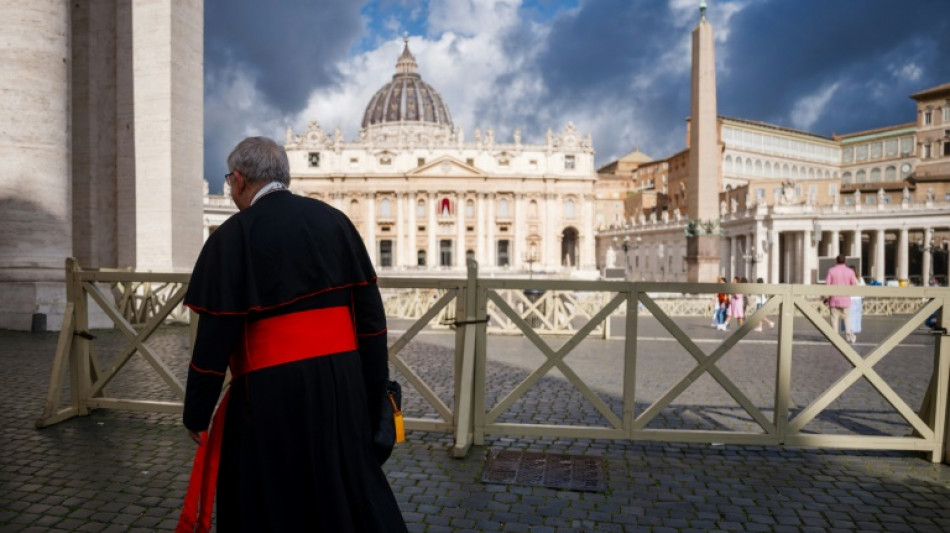
-
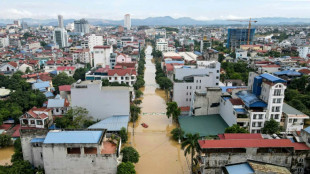 Record flooding hits Vietnam city, eight killed in north
Record flooding hits Vietnam city, eight killed in north
-
Battling cancer made Vendee Globe win 'more complicated', says skipper Dalin
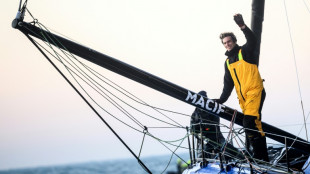
-
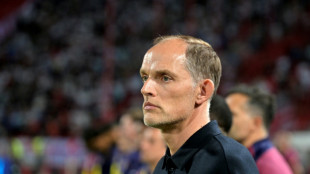 England, Portugal, Norway closing in on 2026 World Cup
England, Portugal, Norway closing in on 2026 World Cup
-
Child protection vs privacy: decision time for EU

-
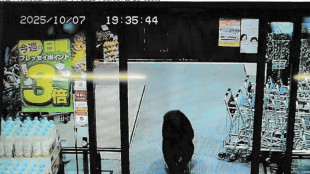 Bear injures two in Japan supermarket, man killed in separate attack
Bear injures two in Japan supermarket, man killed in separate attack
-
In Simandou mountains, Guinea prepares to cash in on iron ore
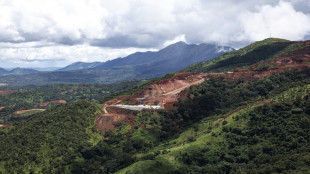
-
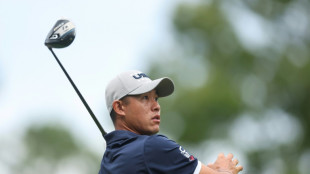 Morikawa says not to blame for 'rude' Ryder Cup fans
Morikawa says not to blame for 'rude' Ryder Cup fans
-
Far right harvests votes as climate rules roil rural Spain
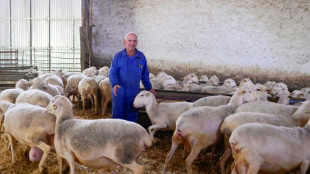
-
 'Return to elegance': highlights from Paris Fashion Week
'Return to elegance': highlights from Paris Fashion Week
-
Britain's storied Conservative party faces uncertain future
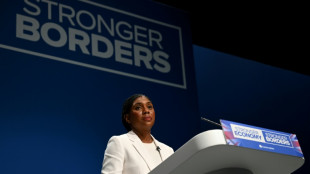
-
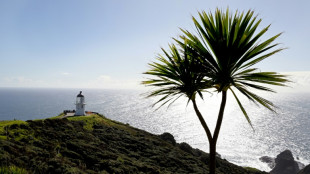 New Zealand's seas warming faster than global average: report
New Zealand's seas warming faster than global average: report
-
Snakebite surge as Bangladesh hit by record rains
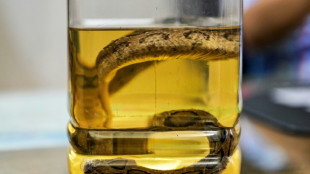
-
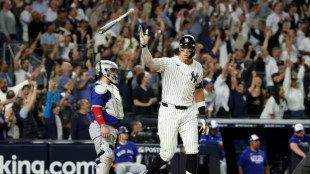 Yankees deny Blue Jays playoff sweep as Mariners beat Tigers
Yankees deny Blue Jays playoff sweep as Mariners beat Tigers
-
Australia police foil 'kill team' gang hit near daycare centre
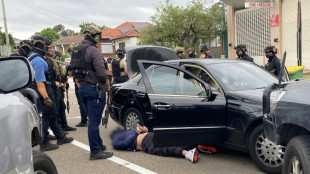
-
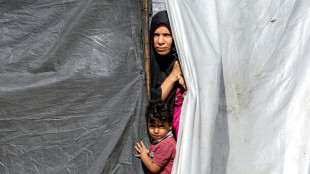 US, Qatar, Turkey to join third day of Gaza peace talks in Egypt
US, Qatar, Turkey to join third day of Gaza peace talks in Egypt
-
Gold tops $4,000 for first time as traders pile into safe haven

-
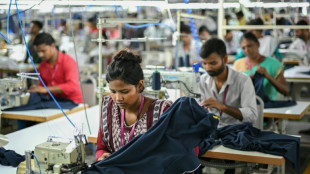 Indian garment exporters reel under US tariffs
Indian garment exporters reel under US tariffs
-
NBA back in China after six-year absence sparked by democracy tweet
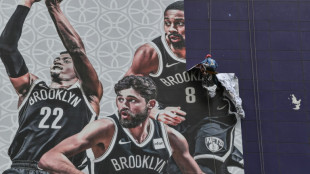
-
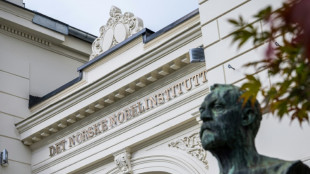 Energy storage and new materials eyed for chemistry Nobel
Energy storage and new materials eyed for chemistry Nobel
-
Trump unlikely to win Nobel Peace Prize, but who will?
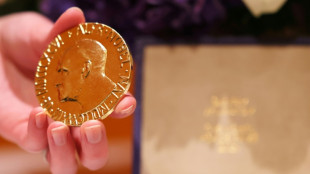
-
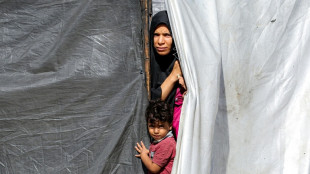 Qatar, Turkey to join third day of Gaza peace talks in Egypt
Qatar, Turkey to join third day of Gaza peace talks in Egypt
-
Study finds women have higher genetic risk of depression
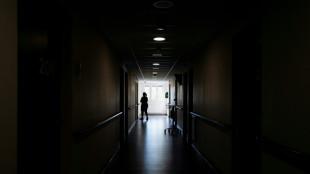
-
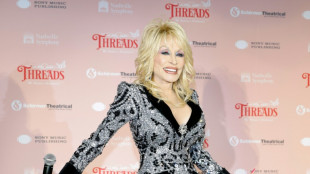 Dolly Parton's sister calls for fan prayers over health issues
Dolly Parton's sister calls for fan prayers over health issues
-
On Trump's orders, 200 troops from Texas arrive in Illinois
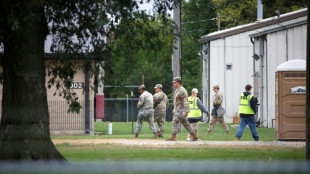
-
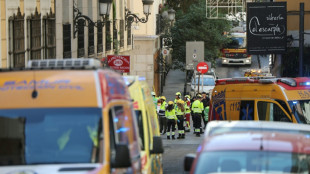 Two bodies found, two missing after Madrid building collapse
Two bodies found, two missing after Madrid building collapse
-
Panthers raise banner as NHL three-peat bid opens with win
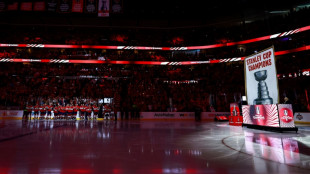
-
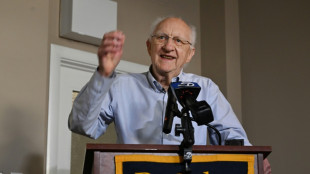 Nobel physics laureate says Trump cuts will 'cripple' US research
Nobel physics laureate says Trump cuts will 'cripple' US research
-
UFC star McGregor suspended 18 months over missed drug tests

-
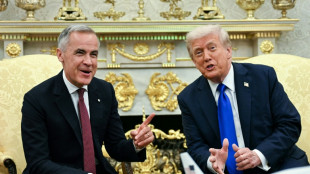 Trump talks up Canada trade deal chances with 'world-class' Carney
Trump talks up Canada trade deal chances with 'world-class' Carney
-
Ecuador president unharmed after apparent gun attack on motorcade
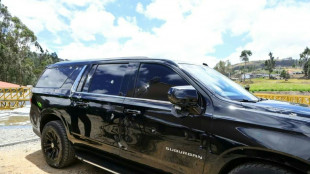
-
 Lyon exact revenge on Arsenal, Barca thrash Bayern in women's Champions League
Lyon exact revenge on Arsenal, Barca thrash Bayern in women's Champions League
-
Trump says 'real chance' to end Gaza war as Israel marks attacks anniversary
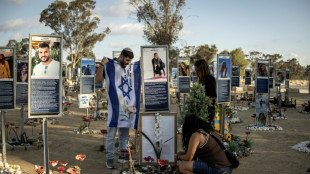
-
 Gerrard brands failed England generation 'egotistical losers'
Gerrard brands failed England generation 'egotistical losers'
-
NFL fines Cowboys owner Jones $250,000 over gesture to fans
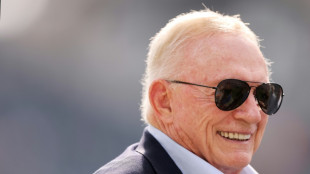
-
 Bengals sign veteran quarterback Flacco after Burrow injury
Bengals sign veteran quarterback Flacco after Burrow injury
-
New prime minister inspires little hope in protest-hit Madagascar
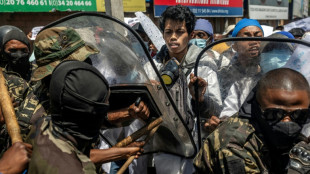
-
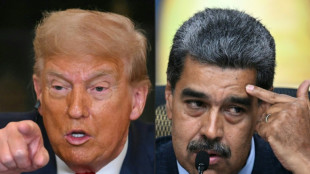 Is Trump planning something big against Venezuela's Maduro?
Is Trump planning something big against Venezuela's Maduro?
-
EU wants to crack down on 'conversion therapy'
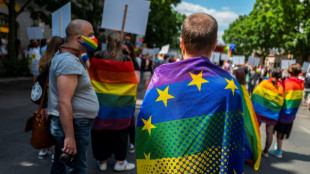
-
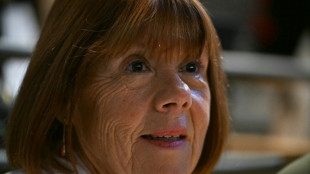 French sex offender Pelicot says man who abused ex-wife knew she was asleep
French sex offender Pelicot says man who abused ex-wife knew she was asleep
-
Trump says 'real chance' to end Gaza war as Israel marks Oct 7 anniversary
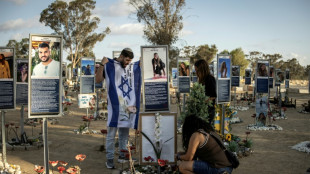
-
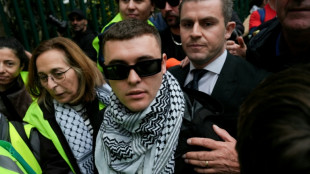 UK prosecutors to appeal dropped 'terrorism' case against Kneecap rapper
UK prosecutors to appeal dropped 'terrorism' case against Kneecap rapper
-
Spain, Inter Miami star Alba retiring at end of season

-
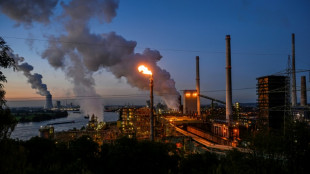 EU targets foreign steel to rescue struggling sector
EU targets foreign steel to rescue struggling sector
-
Trump talks up Canada deal chances with visiting PM
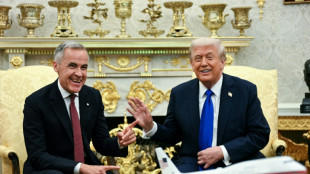
-
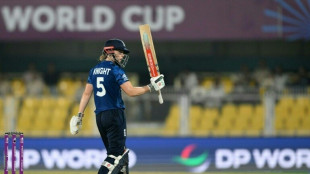 Knight rides her luck as England survive Bangladesh scare
Knight rides her luck as England survive Bangladesh scare
-
Pro-Gaza protests flare in UK on anniversary of Hamas attack
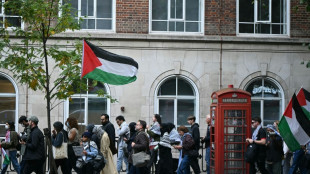
-
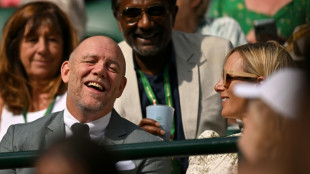 Top rugby unions warn players against joining rebel R360 competition
Top rugby unions warn players against joining rebel R360 competition
-
Outcast Willis 'not overthinking' England absence despite Top 14 clean sweep

-
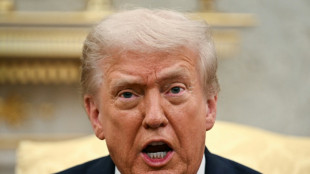 Trump says 'real chance' of Gaza peace deal
Trump says 'real chance' of Gaza peace deal
-
Macron urged to quit to end France political crisis
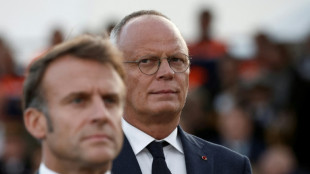

Papal conclave by the numbers
The Vatican's papal conclave to choose a new spiritual leader for the world's 1.4 billion Catholics is governed by procedures and rituals that have evolved over centuries.
But the result of the election will be influenced by arithmetic unique to this year's exercise:
- 133 Cardinal electors -
A record number of churchmen are eligible to vote in conclave. There are 135 who meet the criteria -- to be a cardinal under the age of 80 -- but only 133 are to take part in the vote, with two said to be too ill to attend. This is up from 115 during the last two conclaves in 2005 and 2013.
Among them, 52 hail from Europe, 23 Asia, 17 South or Central America, 17 Africa, 20 North America, and four Oceania.
- 69 countries -
The cardinal electors come from 69 countries across five continents, another record.
- 70 years and three months -
The average age of the cardinal electors is 70 years and three months. The youngest is Ukraine's Mykola Bychok, archbishop of Melbourne, at 45.
The oldest is Carlos Osoro Sierra, a Spaniard who at 79 years and 11 months was almost too old to vote.
- 81.2 percent -
A large majority, 81.2 percent, of the 133 cardinal electors were appointed by Pope Francis during his 12 years at the head of the Holy See. These 108 are taking part in their first conclave.
Among the veterans, 20 were named by Benedict XVI and five by John Paul II.
- 17 Italians -
For centuries both the papacy and the college of cardinals were dominated by Italians, but as the church has gone global their numbers have fallen.
Nevertheless, at 17, Italy still has the biggest national contribution, down from 28 in 2013.
- 15 new countries -
Some 15 countries are represented for the first time, with cardinals from Haiti, Cape Verde, Papua New Guinea and South Sudan.
- 18 religious orders -
Within the Catholic Church are several religious orders. Francis, for example, was a Jesuit and 18 such movements will have cardinals in the Sistine Chapel for the voting.
- Four votes per day -
If no clear winner emerges in the initial ballot, the cardinals will vote four times a day, twice in the morning and twice in the afternoon, until a majority emerges.
- 89-vote majority -
The new pope will need a two-thirds majority. With 133 in the room, 89 cardinals must write his name on their secret ballot papers.
- Two stoves -
The ballots cast by the cardinals are burned in a stove, both to preserve the secrecy of the process and to act as a signal of progress to the faithful gathered outside the sealed chapel.
Today, two stoves are used, connected to the same chimney.
In one, the ballots are burned, in the other a chemical compound is burned to create either black smoke -- no majority yet -- or white -- a new pope has been chosen.
- Two days? -
If no majority emerges quickly, in theory a conclave could continue for weeks or months.
In practice, the previous two -- the 2005 election of Benedict XVI and of Francis in 2013 -- lasted two days.
In the 20th and 21st centuries, conclaves have never lasted longer than five days, as was the case for Pope Pius XI's election in 1922, which required 14 ballots.
S.Leonhard--VB
